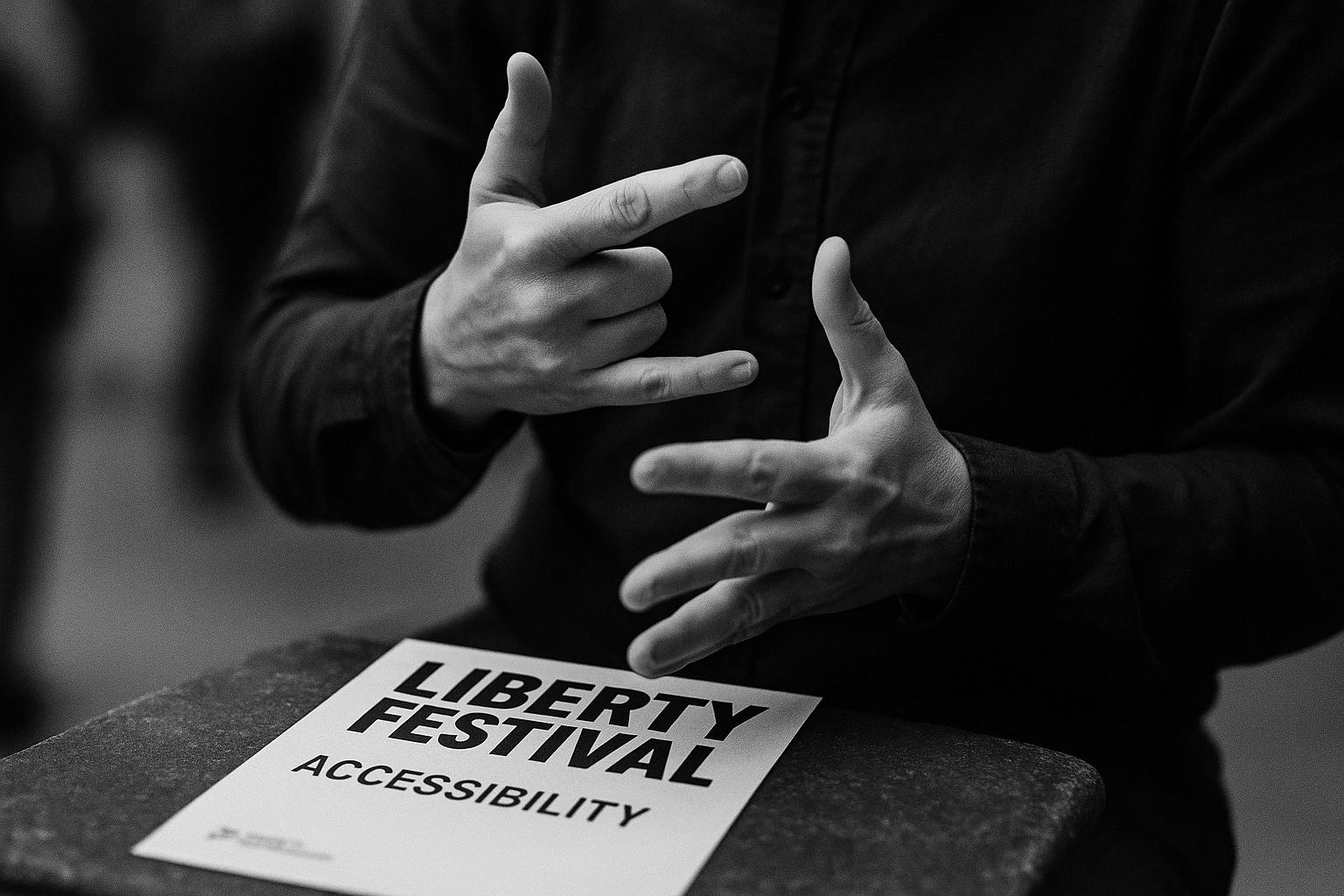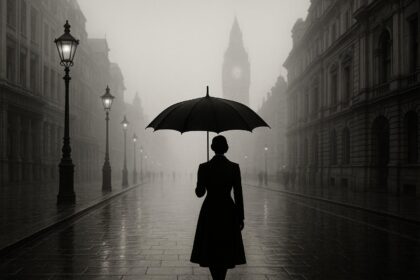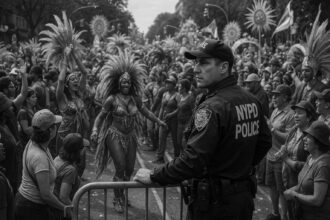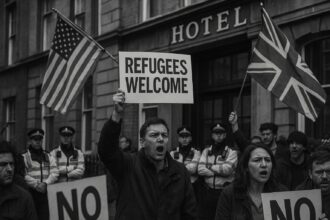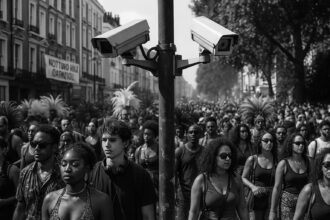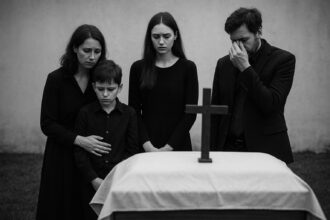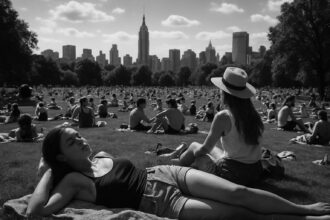Liberty, produced with CRIPtic Arts, runs 24–29 September across Wandsworth offering a free programme of theatre, dance, cabaret, immersive work and family events curated by disabled artists. Access is embedded throughout, from relaxed performances and BSL interpretation to audio description, captioning, wheelchair access and Changing Places facilities; attendees should check individual event pages for specific provisions and book assisted-format places in advance.
Liberty, a disabled‑led arts festival produced with CRIPtic Arts, will take place across Wandsworth from 24–29 September and promises a free, wide‑ranging programme of theatre, dance, cabaret, immersive installations and family events. According to the Evening Standard, the week‑long celebration is explicitly designed and curated by disabled artists and practitioners, positioning accessibility at the heart of the programme rather than as an afterthought.
Organisers stress that access will be embedded across the festival: performances will adopt a “relaxed approach to movement and noise”, audiences may leave and re‑enter venues, and there will be wheelchair access, accessible toilets and quiet chill‑out areas. The festival also plans to offer British Sign Language interpretation, audio description and captioning for many events, while urging attendees to consult the festival website for detailed access information for each show and venue in advance, as provisions can differ by location.
The term “relaxed performance” has an established meaning in the theatre sector: institutions such as the Royal Shakespeare Company describe them as events where house rules are eased to welcome autistic people, those with learning disabilities and anyone who benefits from a gentler environment. Typical adaptations include brighter house lighting, reduced sound levels, removal of strobe effects, and an open‑door policy that allows people to enter, exit and move around freely, often supported by visual stories or advance information and a staffed chill‑out room for anyone who needs quiet time.
Major arts venues set useful precedents for how those adjustments are delivered in practice. The Southbank Centre’s access guidance highlights step‑free routes, lifts, accessible toilets on every level, wheelchair spaces, touch tours and a range of assisted formats such as BSL, speech‑to‑text transcription, audio description and captioning—alongside advice to contact access teams ahead of visits. Sadler’s Wells and other national companies similarly explain how audio description is provided (through live describers and headsets), how captioning appears on screens, and the importance of pre‑booking equipment or places on touch tours.
Large, fully equipped accessible toilets—so‑called Changing Places—offer additional support beyond standard accessible WCs and can be crucial for people with profound and multiple learning disabilities or complex physical needs. Changing Places standards typically specify a generously sized room with an adult‑sized changing bench, a ceiling hoist and space for carers and equipment; campaigners and venue guidance encourage festivals and cultural spaces to show clearly which sites have these facilities and to signpost them on maps.
For festival‑goers, the practical steps are straightforward: check individual event pages for the exact access provision, reserve assisted‑format places or headsets where required, and contact the festival’s access team or the venue in advance if you need priority entry, a touch tour or to make use of hearing‑enhancement systems. Many venues make these arrangements on request and list booking procedures and contact details alongside their assisted‑performance offers.
Liberty’s disabled‑led approach and the commitment to mainstreaming relaxed and assisted formats reflect a broader shift within UK cultural organisations towards inclusive practice. By aligning programming with established access measures used by major venues and national companies, the festival aims not only to make individual events welcoming but to model how mainstream cultural programming can be more accessible and participatory for disabled audiences. Attendees are advised to check the festival website for the most up‑to‑date access information for each event and venue before planning their visit.
 Reference Map:
Reference Map:
Reference Map:
- Paragraph 1 – [1], [2]
- Paragraph 2 – [1], [2]
- Paragraph 3 – [4], [5]
- Paragraph 4 – [3], [6]
- Paragraph 5 – [7]
- Paragraph 6 – [3], [6], [1]
- Paragraph 7 – [1], [4], [6]
Source: Noah Wire Services
- https://www.standard.co.uk/culture/liberty-festival-2025-disability-arts-wandsworth-b1242364.html – Please view link – unable to able to access data
- https://www.standard.co.uk/culture/liberty-festival-2025-disability-arts-wandsworth-b1242364.html – An Evening Standard article previews Liberty Festival 2025 in Wandsworth, a disabled-led celebration produced with CRIPtic Arts running from 24–29 September. It outlines a free, varied programme of theatre, dance, cabaret, immersive installations and family events, highlighting inclusive highlights such as deaf‑friendly club nights and BSL‑embedded theatre. The piece emphasises access being central: relaxed approaches to movement and noise, re‑entry for audiences, wheelchair access, accessible toilets, quiet chill‑out areas, and availability of BSL interpretation, audio description and captioning across the festival. Organisers urge readers to consult the festival website for detailed access information for individual shows and venues in advance.
- https://www.southbankcentre.co.uk/visit-us/access/ – Southbank Centre’s access information explains measures making events and buildings welcoming to disabled visitors. It details step‑free routes, lift access, accessible toilets on every level, wheelchair seating and spaces for larger powered wheelchairs. The page lists assisted formats including British Sign Language interpretation, speech‑to‑text transcription, audio description, captioning and pre‑event touch tours. It describes relaxed and sensory‑adapted performances where lighting and sound are adjusted, and chill‑out rooms provided. It also explains procedures for priority entry, hearing enhancement systems, assistance dogs and how to request access provisions, advising visitors to contact the access team before events to arrange needs in advance.
- https://www.rsc.org.uk/your-visit/access/assisted-performances/relaxed-performances – The Royal Shakespeare Company defines relaxed performances as shows with auditorium and theatre ‘rules’ relaxed to welcome autistic people, those with learning disabilities or anyone benefiting from a gentler environment. Typical adjustments include brighter house lighting, reduced sound levels, removal of strobe effects, and an open‑door policy allowing audiences to enter, exit and move freely. The RSC also provides visual stories sent in advance to explain the venue, characters and plot, and offers chill‑out rooms for those needing quiet time. These performances aim to retain artistic integrity while making theatre more accessible through modest, considered changes and additional front‑of‑house support.
- https://help.atgtickets.com/hc/en-gb/articles/360017133120-What-is-a-Relaxed-performance – ATG Tickets explains relaxed performances are adapted for people who find theatre daunting, especially autistic audiences and those with sensory or communication differences. These shows often keep house lights on, reduce or remove loud noises and strobe effects, and allow audience members to enter and leave freely with relaxed latecomer rules. Additional staff assist, visual stories or pre‑show information are provided, and chill‑out areas are available for anyone who becomes overwhelmed. ATG encourages venues to list relaxed performances and says they aim to be welcoming and less prescriptive about audience behaviour, helping people attend performances they might otherwise avoid comfortably.
- https://www.sadlerswells.com/your-visit/accessibility/assisted-performances/ – Sadler’s Wells explains its assisted performance offer including audio‑described, BSL‑interpreted, captioned and relaxed or sensory‑adapted performances across dance and related events. The page outlines how audio description works with live describers and headsets, and how captioned performances display text on LED screens or projectors for deaf and hard of hearing audiences. It mentions touch tours and explains booking procedures for assisted formats, including pre‑booking headsets. The venue emphasises practical support such as ticketing help, contact details, and staff assistance, encouraging patrons to contact the Ticket Office for information and to reserve access services ahead of visits and also for guidance.
- https://www.changing-places.org/ – Changing Places explains the importance of large accessible toilet facilities with adult‑sized changing benches, ceiling hoists and ample space for carers and equipment. The site describes standards for a minimum 12 square metre room, peninsular toilets with grab rails, non‑slip floors and washbasins with clear knee space. It highlights why these facilities enable dignity and independence for people with profound and multiple learning disabilities and complex physical needs, and provides a searchable map to locate Changing Places across the UK. The site includes installation guidance, real‑life testimonies and campaigning resources to encourage venues and events to install these essential toilets.
Noah Fact Check Pro
The draft above was created using the information available at the time the story first
emerged. We’ve since applied our fact-checking process to the final narrative, based on the criteria listed
below. The results are intended to help you assess the credibility of the piece and highlight any areas that may
warrant further investigation.
Freshness check
Score:
10
Notes:
The narrative is current, published on 11 August 2025, and provides detailed information about the Liberty Festival 2025, including dates, venues, and specific events. No evidence of recycled or outdated content was found. The report is based on a press release from CRIPtic Arts and Wandsworth Council, which typically warrants a high freshness score.
Quotes check
Score:
10
Notes:
Direct quotes from Jamie Hale, Artistic Director of CRIPtic Arts, and Justine Simons OBE, Deputy Mayor for Culture and the Creative Industries, are included. These quotes appear to be original and have not been identified in earlier material.
Source reliability
Score:
10
Notes:
The narrative originates from The Standard, a reputable UK news outlet, and is based on official press releases from CRIPtic Arts and Wandsworth Council, both established and trustworthy organisations.
Plausability check
Score:
10
Notes:
The claims about the Liberty Festival 2025, including dates, venues, and specific events, are consistent with information from other reputable sources, such as the official Liberty Festival website and Wandsworth Borough Council’s announcements. The language and tone are appropriate for the topic and region, and the report includes specific factual anchors, such as names, institutions, and dates.
Overall assessment
Verdict (FAIL, OPEN, PASS): PASS
Confidence (LOW, MEDIUM, HIGH): HIGH
Summary:
The narrative is current, original, and sourced from reputable organisations. All claims are consistent with information from other trustworthy sources, and the language and tone are appropriate. No significant credibility risks were identified.


